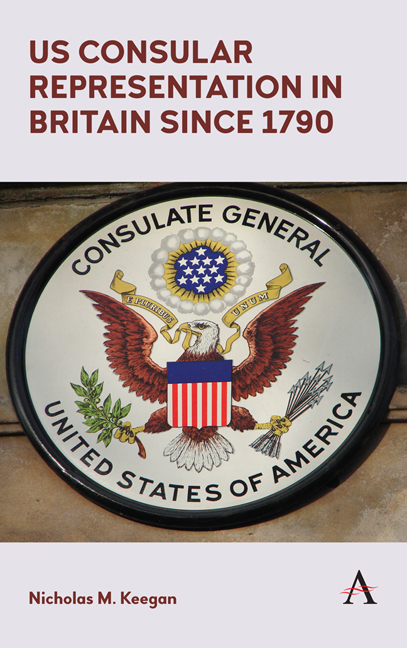Book contents
- Frontmatter
- Dedication
- Contents
- List of Illustrations
- Foreword
- Preface
- Acknowledgements
- Introduction
- PART 1
- PART 2
- PART 3
- Chapter Six Consular Posts and Consular Agencies in Major Cities
- Chapter Seven Belfast
- Chapter Eight Birmingham
- Chapter Nine Bradford
- Chapter Ten Bristol
- Chapter Eleven Cardiff
- Chapter Twelve Dublin
- Chapter Thirteen Dundee
- Chapter Fourteen Dunfermline
- Chapter Fifteen Edinburgh and Leith
- Chapter Sixteen Falmouth
- Chapter Seventeen Liverpool
- Chapter Eighteen London
- Chapter Nineteen Newcastle upon Tyne
- Chapter Twenty Southampton
- Chapter Twenty-One Stoke on Trent
- Chapter Twenty-Two An Evolving, Adaptive Service
- Appendix: Locations and Categories of Consular Offices
- Notes
- Sources
- Bibliography
- Index
Chapter Nineteen - Newcastle upon Tyne
from PART 3
Published online by Cambridge University Press: 21 June 2018
- Frontmatter
- Dedication
- Contents
- List of Illustrations
- Foreword
- Preface
- Acknowledgements
- Introduction
- PART 1
- PART 2
- PART 3
- Chapter Six Consular Posts and Consular Agencies in Major Cities
- Chapter Seven Belfast
- Chapter Eight Birmingham
- Chapter Nine Bradford
- Chapter Ten Bristol
- Chapter Eleven Cardiff
- Chapter Twelve Dublin
- Chapter Thirteen Dundee
- Chapter Fourteen Dunfermline
- Chapter Fifteen Edinburgh and Leith
- Chapter Sixteen Falmouth
- Chapter Seventeen Liverpool
- Chapter Eighteen London
- Chapter Nineteen Newcastle upon Tyne
- Chapter Twenty Southampton
- Chapter Twenty-One Stoke on Trent
- Chapter Twenty-Two An Evolving, Adaptive Service
- Appendix: Locations and Categories of Consular Offices
- Notes
- Sources
- Bibliography
- Index
Summary
Newcastle upon Tyne is the principal city and port of the north-east of England and was formerly famous for its major shipbuilding industry, coal exports, engineering and other heavy industries. Nowadays, it is a vibrant commercial city with two world-class universities.
By 1824 the United States had established its first consular presence in the city in an agency headed by Matthew Plummer, a local ship and insurance broker with offices on the Quayside. The extant records do not show when he was appointed, but his company traces its existence to at least 1811. The agency reported to the consul at Hull. A consular agency is the equivalent of an honorary consulate, but Plummer often seemed uncertain of his status, describing himself variously as consul, vice consul and consular agent. His consular income was derived from the fees that he charged which, throughout the 1830s, averaged just over $120 every six months. In 1831 and 1832 a serious outbreak of cholera occurred in the consular district, starting in nearby Sunderland and spreading rapidly throughout the country. There was much consular activity, preparing reports for the consul at Hull, who forwarded them to the State Department. In Newcastle and Gateshead during December 1831 and early January 1832, 345 new cases were notified, 91 deaths occurred and 220 victims made recoveries. It is not clear when Plummer relinquished his appointment, although it was probably in 1855. He died on 25 December 1856.
In 1855, Albert Davy, the consul in Leeds (to where he had relocated from Hull, while retaining a vice consul there) appointed his son Herbert as vice consul at Newcastle. The post remained unsalaried, with Herbert deriving his income from fees, which were fairly generous considering the largely routine nature of the duties. For example, during the quarter ended 30 June 1857 they amounted to $232. This was worth almost £5,000 in 2016. One of Herbert Davy's early tasks was dealing with deserters from American ships arriving in Newcastle, reporting that: ‘The extent to which desertion … is now so great that at one time not fewer than 108 men deserted from American vessels in the Tyne without any just cause.’ He drew up a document authorizing the River Tyne police to apprehend the deserters and return them to their ships.
- Type
- Chapter
- Information
- US Consular Representation in Britain since 1790 , pp. 205 - 220Publisher: Anthem PressPrint publication year: 2018



